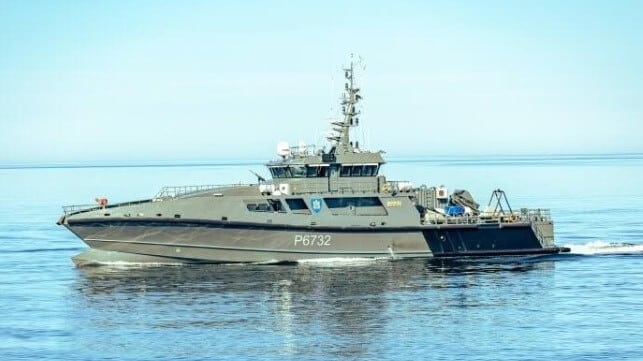Baltic Nations Strengthen Undersea Infrastructure Security

In the wake of recent incidents damaging critical undersea infrastructure, Baltic nations are ramping up their efforts to monitor and protect vital connections. The Christmas Day incident, which severed a key power cable between Finland and Estonia, has raised alarms about the security of undersea cables and other critical infrastructure in the region. Countries like Estonia, Lithuania, Sweden, and Finland are now collaborating to enhance their protective measures. Both the European Union and NATO have pledged to support these initiatives, emphasizing the importance of safeguarding essential services.
Heightened Vigilance in the Baltic Sea
Estonia’s Foreign Minister, Margus Tsahkna, has voiced concerns over the increasing frequency of incidents in the Baltic Sea. He expressed skepticism about attributing these events solely to accidents or poor seamanship. The recent damage to power and internet cables is not an isolated case; it follows last month’s severing of two telecom cables in Swedish waters, which have been linked to a Chinese vessel. Additionally, a Chinese ship was suspected of damaging a gas pipeline between Finland and Estonia last year. The ongoing investigation into the Nord Stream pipeline damage from 2022 also raises questions about potential sabotage.
In response to these threats, the governments of Finland and Estonia have convened meetings to discuss the situation. Estonia’s Prime Minister, Kristen Michal, emphasized the importance of increasing protection for both land and sea infrastructure. She reassured citizens that the security of electricity and communication services remains intact. To bolster security, Estonia’s Navy has deployed the patrol ship Raju to protect the Estlink 1 cable, a smaller but crucial connection between Estonia and Finland. Major General Andrus Merilo, Commander of the Defense Forces, stated that the military is prepared to prevent attacks on energy infrastructure using both military and non-military means.
Collaborative Efforts for Enhanced Security
In addition to Estonia’s initiatives, Lithuania has reported an increase in naval surveillance and patrols in the Baltic Sea. The Swedish Coast Guard is also stepping up its efforts, coordinating with the Swedish Navy and other government agencies to enhance maritime surveillance. The European Commission has announced plans to strengthen the protection of undersea cables through improved information exchange, new detection technologies, and enhanced repair capabilities.
Estonia’s Prime Minister Michal has called for NATO reinforcements to act as a deterrent against potential threats. He indicated that Estonia might invoke Article 4 of the NATO Treaty, which allows for mutual support among member nations when one feels threatened. Michal stressed the need for a comprehensive understanding of the threats to critical infrastructure, both underwater and above water. He highlighted the challenge of protecting every square kilometer at all times, noting that defenders must succeed consistently while perpetrators only need to succeed once.
Finland’s President, Alexander Stubb, echoed these sentiments, emphasizing the importance of increasing NATO’s maritime presence in the Baltic Sea. Following discussions with NATO Secretary General Mark Rutte, it was confirmed that NATO would enhance its military presence in the region. Estonia is also seeking new measures at the International Maritime Organization to strengthen legal ramifications for those who threaten undersea infrastructure. Prime Minister Michal called for more effective ways to identify and apprehend perpetrators swiftly.
As tensions rise and incidents continue, the Baltic nations are taking decisive steps to ensure the security of their critical infrastructure. The collaboration among these countries, along with support from NATO and the EU, reflects a unified approach to safeguarding essential services in a region facing increasing threats.
